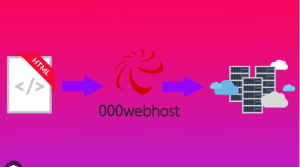In the vast landscape of web hosting services, finding the most cost-effective option tailored to your specific needs can be a challenging task. With numerous providers offering a wide array of plans and features, it’s crucial to navigate through the options carefully. This guide will walk you through step-by-step to help identify the most economical hosting website for your requirements.
1. Understand Your Hosting Needs
Before diving into the hunt for the cheapest hosting service, take stock of your website’s requirements. Consider factors such as:
- Traffic Volume: Estimate the anticipated traffic your website might attract. A new blog might require less bandwidth compared to an established e-commerce platform.
- Performance: Determine the level of performance your site needs. Websites with multimedia content might need higher server resources for seamless user experience.
- Technical Requirements: Check for specific technologies or scripts your website uses. Ensure the hosting service supports them.
2. Compare Hosting Types
There are various types of hosting, each catering to different needs and budget levels:
- Shared Hosting: Ideal for beginners due to its affordability, where multiple websites share resources on one server.
- Virtual Private Server (VPS): Offers more resources and control than shared hosting, suitable for websites with increasing traffic.
- Dedicated Hosting: Entire server resources dedicated to one website, providing maximum control and performance but at a higher cost.
- Cloud Hosting: Scalable and flexible, allowing you to pay for what you use. Often, it’s cost-effective for fluctuating traffic.
3. Research Hosting Providers
Once you’ve identified your hosting requirements, research various providers offering the services you need. Some well-known hosting companies often offer competitive pricing:
- Bluehost: Known for its beginner-friendly interface and reasonable pricing, often with frequent promotional offers.
- HostGator: Offers affordable plans with a wide range of features suitable for small to medium-sized websites.
- SiteGround: Renowned for its excellent customer support and performance at a slightly higher price point.
- DreamHost: Known for unlimited bandwidth and storage, making it cost-effective for growing websites.
4. Compare Pricing Plans
Compare the pricing structures of shortlisted hosting providers:
- Introductory vs. Renewal Prices: Many hosting companies offer lower rates for the initial term, which might significantly increase upon renewal.
- Promotional Offers: Keep an eye out for discounts or promotional codes that can reduce the overall cost.
- Long-Term Plans: Some hosts offer better discounts for longer-term commitments, but ensure it aligns with your website’s long-term goals.
5. Consider Additional Features
While focusing on finding the cheapest hosting, also consider essential features and support:
- Customer Support: Look for providers offering reliable customer support, especially if you’re new to website management.
- Uptime Guarantee: Ensure the host promises a high uptime percentage to minimize website downtime.
- Security Measures: Check for included security features like SSL certificates, regular backups, and malware protection.
6. Read Reviews and Testimonials
Before making a final decision, delve into user reviews and testimonials:
- Reliability: Check for feedback on uptime, server speed, and overall reliability.
- Customer Support: Evaluate user experiences with customer service responsiveness and helpfulness.
- Scalability: Look for reviews from users who have scaled their websites with the hosting provider.
7. Seek Money-Back Guarantees
Many hosting providers offer a money-back guarantee within a specific period:
- Take Advantage: Use this period to test the hosting service thoroughly. Assess its performance, ease of use, and support.
- Ensure Terms: Understand the terms of the money-back guarantee to avoid any misunderstandings.
8. Check for Hidden Costs
While opting for the cheapest hosting, beware of hidden fees:
- Renewal Costs: Understand the renewal rates after the initial term to avoid unexpected price hikes.
- Additional Services: Some providers charge extra for add-ons or services not included in the base package.
9. Finalize and Monitor Performance
Once you’ve selected a hosting provider, monitor its performance:
- Track Uptime: Use monitoring tools to ensure the host maintains promised uptime.
- Website Speed: Regularly check your website’s loading speed to ensure optimal performance.
In conclusion, finding the cheapest hosting website requires careful consideration of your website’s needs, thorough research, and comparison among various providers. By following these steps, you can land the most economical hosting solution without compromising on essential features and reliability.
Introduction
Choosing the right hosting provider is crucial for website performance and budget considerations. The market offers a plethora of options, each with its own pricing structures and features. Here, we’ll delve into the considerations and various hosting providers renowned for their affordability.
Factors to Consider
- Price Plans: Assess different hosting plans—shared, VPS, dedicated—to understand their costs and resource allocation.
- Features: Look for essential features like bandwidth, storage, uptime guarantees, and customer support.
- Performance: Consider server speed, reliability, and scalability to accommodate future growth.
- User Interface: Evaluate the ease of use of the hosting provider’s control panel or dashboard.
- Customer Support: Responsive and knowledgeable support can be a lifesaver during technical issues.
Cheapest Hosting Providers
- Bluehost: Known for its budget-friendly shared hosting plans and free domain registration for the first year.
- Hostinger: Offers low-cost shared hosting with a wide range of features and a user-friendly interface.
- DreamHost: Known for its affordable plans and commitment to providing unlimited bandwidth and storage.
- SiteGround: While not the cheapest, it offers great value for money with excellent performance and support.
- A2 Hosting: Known for its competitive pricing, especially for its shared hosting plans.
Comparison of Plans
- Shared Hosting Plans: Analyze the pricing tiers, starting from the basic plan up to the premium ones, comparing features and limitations.
- VPS Hosting: Explore the cost-effectiveness of VPS plans for those needing more resources than shared hosting.
- Dedicated Hosting: Consider this option if your site demands high performance and you have a substantial budget.
Tips for Cost Optimization
- Long-term Plans: Providers often offer discounts for longer-term commitments.
- Promotional Offers: Keep an eye out for introductory deals and seasonal discounts.
- Renewal Costs: Understand how prices change upon plan renewal to avoid surprises.
Conclusion
Selecting the cheapest hosting website involves a careful balance between cost, features, and performance. Conduct thorough research, consider your website’s needs, and leverage available discounts to make an informed decision that aligns with your budget and goals.
Final Thoughts
Choosing the cheapest hosting website isn’t just about the price tag; it’s about finding the right balance between affordability and quality service. Take your time to compare options, read reviews, and consider your website’s specific requirements before making a decision.



